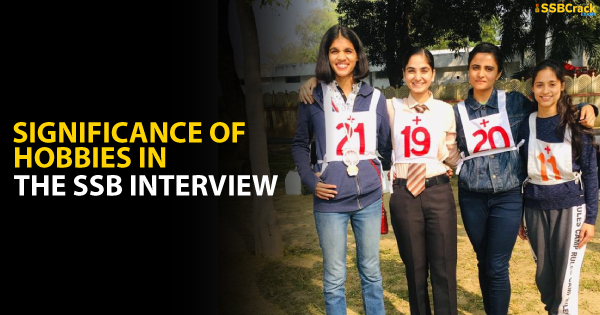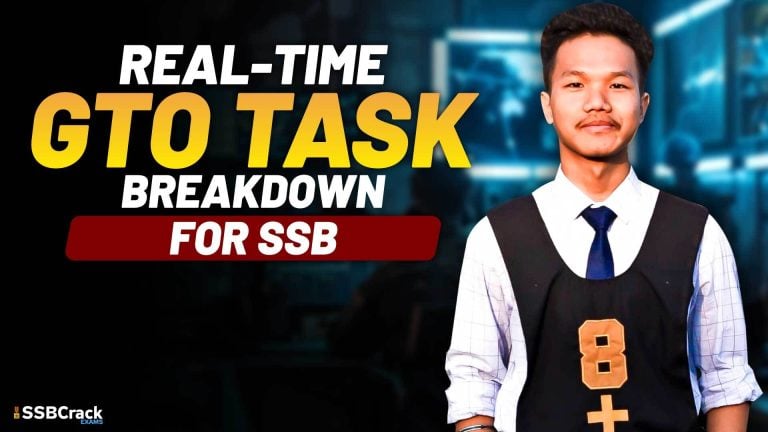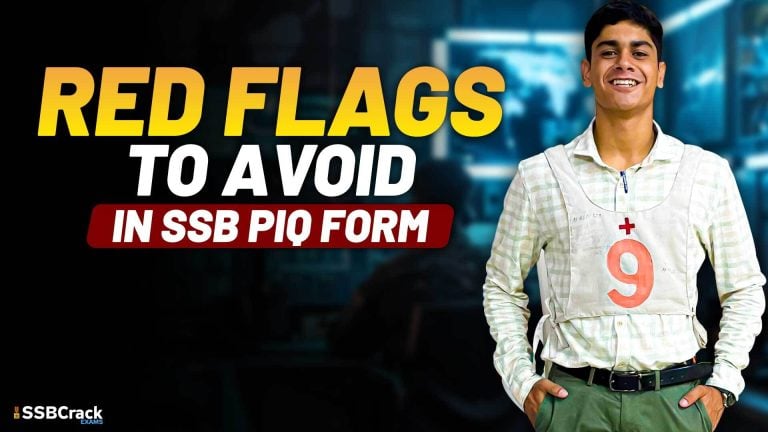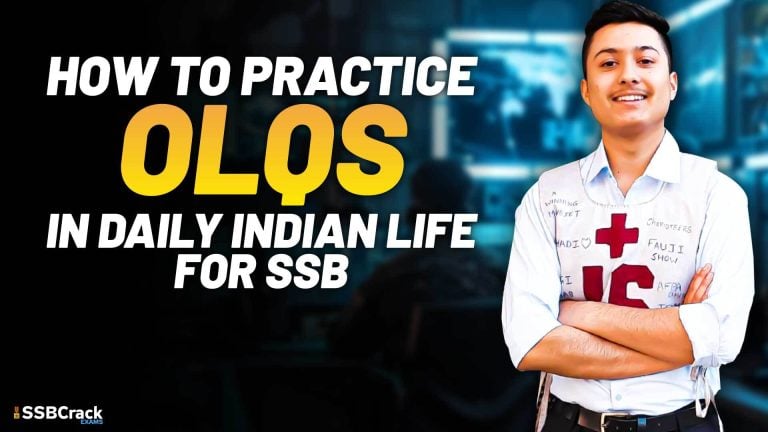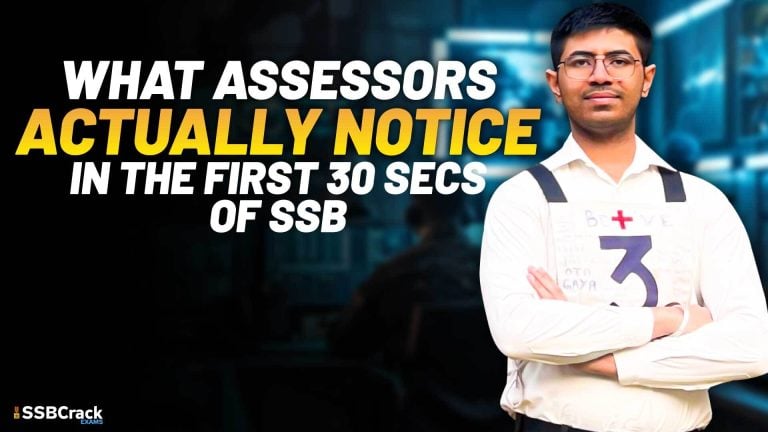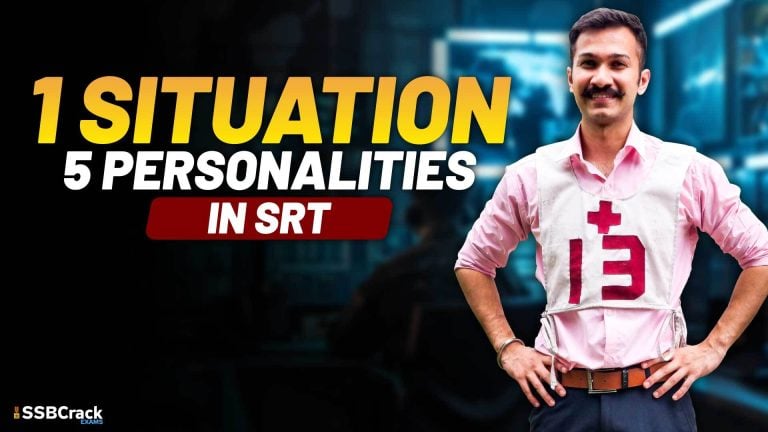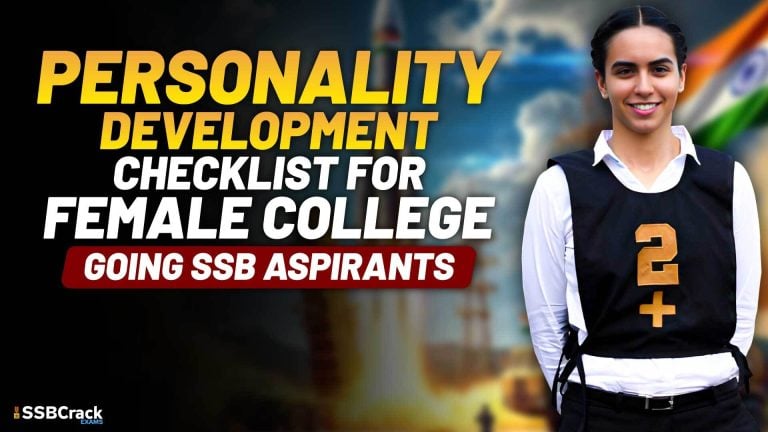“Personal Information Questionnaire” is called as the PIQ form that is required by the candidates to fill in the SSB centre. It consists of a number of basic candidate background questions such as education, family, city, hobbies, interests, CCA activities etc. Generally, filled after the screening process and is sent to the psychologist and the interviewer for the evaluation. It helps the assessor to form a basic picture of the candidate and understand the overall personality and acts as the initial impression of the candidate.
It provides only general information and the interview is primarily based on PIQ form but the interviewer can know about the candidate’s qualities by interacting with him further on the basis of PIQ. PIQ form should be filled honestly as cross-questioning will verify the candidate’s claim made by him while filling the form.
Let’s talk about the significance of hobbies & interests, extra-curricular and position of responsibilities in the SSB:
• The space b and c of column 11 ask for information regarding the candidate’s hobbies and interests, and participation in extracurricular activities. First of all, we need to understand the difference between hobbies and interests as many candidates remain confused about the two and use them interchangeably. A hobby is an activity done regularly in one’s leisure time for pleasure. Hobbies usually include collecting items and objects, playing sports, engaging in creative and artistic pursuits, etc.
• Some examples of hobbies include hiking, water sports, reading, writing poems and cooking. The hobby involves an active pursuit of an interest. In other words, a hobby always involves action. A person can gain a wealth of knowledge and skills by engaging in a hobby for a long period of time. With the advent of technology, some hobbies have grown less popular, and some new hobbies (e.g. video gaming, surfing the internet) have been created.
• Interest is a feeling of wanting to know or learn about something or someone. If one has a strong interest in some subject, he or she may turn it into a hobby. But interest is not necessarily a hobby. A person may have many interests, but not all of them are hobbies. However, a hobby is usually driven by interest.
• For example, if a person is interested in literature, he or may she read novels. If a person is interested in outdoor activities, he may take up an outdoor hobby such as swimming, cycling, long-distance bike riding, etc. Just because a person is interested in some field or subject, he or she may not pursue it actively. For example, a person may have a passing interest in music. He may listen to music, but may not learn to play a musical instrument or to sing.
• Understand that having an interest doesn’t require taking action. Interests are more thought-based—they come into your head quickly and can exit in weeks. A hobby, on the other hand, requires you to take action and learn a new skill. These tell about the dynamic side of the candidate’s personality and also his/her active involvement in things. Your hobbies and interests tell quite a lot about your personality and many questions arise out of them. Your knowledge as well as your awareness about them are cross-checked and may lead to even the minute details.
• You are advised to not bluff regarding this as a lack of hobbies and interests doesn’t lower your chances anyhow and you can give a reason behind you’re not having any hobbies or interest. It may be due to studies, family issues, or anything else that is creating an obstacle in your life for pursuing them.
• Extra-curricular activities are those activities that on take along with the studies. For example, working in a club related to debating, poetry, sketching, painting etc. These activities are a part of your school curriculum and you may or may not pursue them but getting involved in them hones your skills in them and may also lead to winning of some competition and accolades. Remember that extra-curricular activities are related to school or college only as they are an extension of the prescribed curriculum.
• The d space in 11th column asks for the position of responsibilities that you held in Sports, NCC, Scouting, Extracurricular and other fields. A candidate who had held and is holding positions of responsibilities is seen as someone who is socially dynamic, a potential leader, well-balanced, a problem solver, and can adjust well in social groups. The type of responsibilities held by you shows the diversity of problems that you would have tackled and the experience gained to deal with routine situations in an optimum manner by using the resources judicially.
• The interviewing officer may come up with various situations, incidents as examples, and conditions that you may have faced during your tenure of holding a specific position of responsibility. It may also be asked about any specific work that you have performed while holding the position of responsibility and it is proof of your efforts and merit in work. Starting from being house captains, vice house captains, sports team captains, head boy, club captain, NCC Rank, group leader in NGO, etc. comes under the purview of holding the position of responsibilities.
• The space in column 12 asks the nature of the commission and the type of service you have applied in that specific SSB. For example, if you are attending SSB by clearing CDS written for IMA or OTA then it will be permanent commission and short service commission. It would be clearly mentioned in the notification of the exam and you should be aware of this information along with the service (Army, Air force or Navy) that you have chosen.
• The column 13 and 14 deals with the information regarding the candidate’s previous SSB attempts. Column number 13 asks the number of previous attempts while column number 14 asks specific details of the previous SSBs such as type of entry, date of SSB, SSB no., chest no. batch no. and place, and the final outcome of the respective SSB.
• It is very necessary for the candidates to fill this information as the assessors require this information to make a judgment regarding your previous performances. Though the results of previous SSBs don’t have much effect on the ongoing SSB but several questions that are related to previous performances, candidate’s introspection, and perceived reason for success or failure etc. are being asked.
The answers by the candidates form a strong basis of many OLQs of the candidate as it is expected that the candidate has returned with full fervour and by analysing his/her previous mistakes and with improved psychology and personality. Also, it may happen that a candidate has previously attended the same SSB that was going to be allotted to him again. To avoid, repeating of specific GTO tasks and most important impression of previous performances by the candidate in the minds of the assessor.
It may happen that prejudices may occur and to avoid that previous records are checked and the respective candidate is allotted a different set of assessors and obstacles that are new to him/her. PIQ form is a parameter through which your progress as a human being is evaluated. It’s fine if you don’t have the above things but it’s not fine if you aren’t making any efforts to develop them in yourself. Start thinking from a broad perspective with rationale in your reasoning and decisions and practise productivity in your daily routine.
This will make you say the truth and honest things and you will be able to say the things as they are without any confusion and much clarity in thoughts as well as in actions. You must be aware of what possible questions can be asked by your answers as well as information provided in the PIQ form. Research a lot about this and come up with logical statements and answers. You need to be aware of the fact that to inspect the genuineness of the claims you have made in the PIQ form, the Interviewer may ask some counter questions to get proof of your actual presence and handling of the situations and responsibilities.
You can prepare for SSB interview and defence entrance exams such as NDA, AFCAT, INET, and CDS by taking Written Online courses as they will not only give you access to full-length quality lectures but will also provide the facility to take standardized mock tests for better study and strategic growth in the exam. You can take multiple quizzes after each lesson to ensure the full understanding of the subject along with creating your customized lesson plans. You can check out the course content along with other important specifics at SSBCrack exams.
You can also access them through the SSBCrack Exams app available in the google play store.
Jai Hind!
